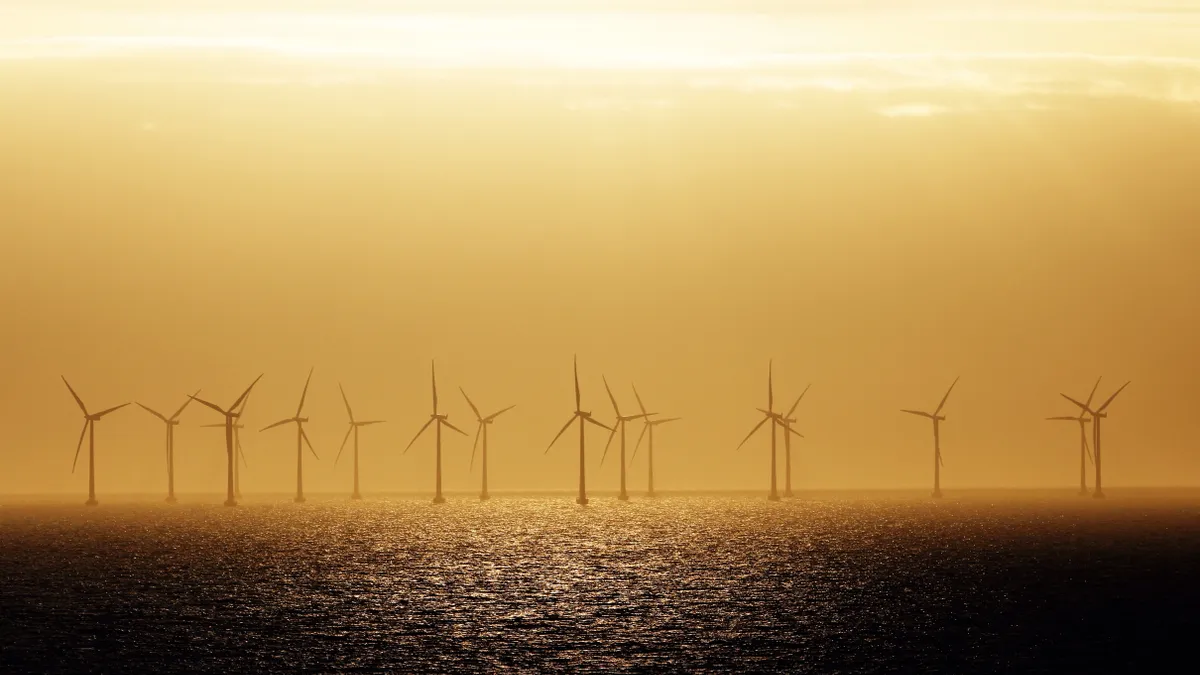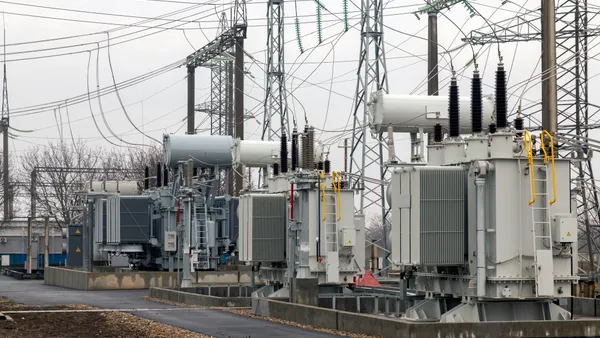Dive Brief:
- A commitment by Massachusetts to develop 2,000 MW of offshore wind over the next decade, along with advances in technology, could cut the projected cost of the clean resource 55% over 13 years, according to a new study.
- The study by University of Delaware Special Initiative on Offshore Wind surveyed industry professionals to analyze what electrical costs would look like with a series of large offshore wind projects off Massachussetts' coast. They found 2,000 MW installed between 2020 and 2030 will lead to costs "far lower than previously contracted prices for offshore wind in the New England region," with initial reductions projected at $0.162/kWh.
- Driven by market forces, volume production would drive the levelized cost of energy down to a final cost of $0.108/kWh over the course of the decade-long build-out, which would make the cost of offshore wind eventually competitive with wholesale market electricity prices in New England.
Dive Insight:
While wind energy has thrived in Europe, US developers struggled to put steel in the water due to high construction costs, Bloomberg noted.
Previously, developers offered their energy at a levelized cost of energy (LCOE) at $0.24/kWh or more than double the market rate, Bloomberg reports, which hurt development even more. But developing 2,000 MW could incentivize wind energy as a major clean resource in the New England region, the study said.
"An important policy finding of this study is U.S. states can, with thoughtful but straightforward policy, lower the cost of power from offshore wind," the study noted.
Even now, there are signs offshore wind is gaining traction in the New England area.
Deepwater Wind's 30 MW, five-turbine Block Island Wind Farm off Rhode Island's coast will be the first operating U.S. offshore wind project when goes online this year. The project's 20-year power purchase agreement (PPA) calls for output to go to National Grid, one of New England’s biggest electricity suppliers, at $0.244/kWh.
The proposed 468 MW Cape Wind project that was planned for Nantucket Sound, had a PPA with National Grid for 50% of the project’s output and a PPA with Eversource Energy for 27.5% of its electricity. Both were set at $0.187/kWh for the project’s first year output, with annual escalators. Both were ruled by state regulators to be beneficial for Massachusetts ratepayers, but the project is overcoming court hurdles, with A D.C. appeals court case, a case before the Massachusetts Supreme Judicial Court, and a third in a federal district court remaining.














